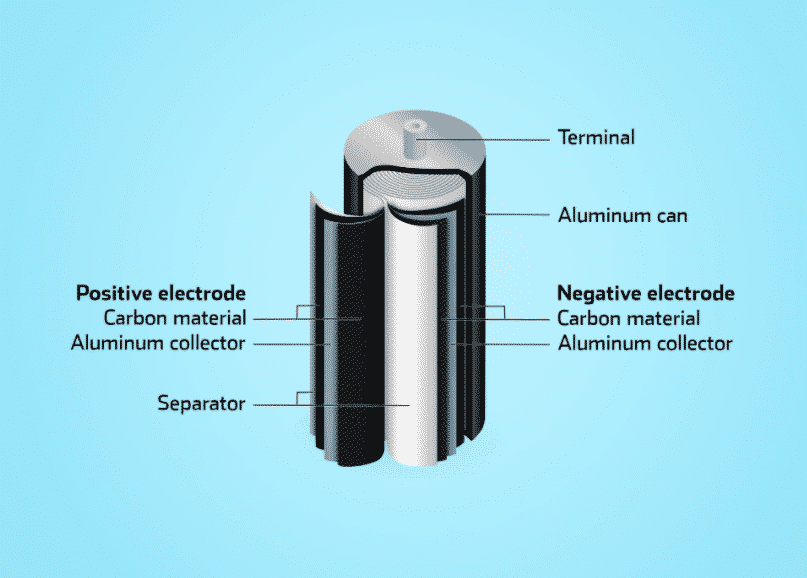You probably already know what graphene is, the material which is making the tech community excited. We ourselves have briefly introduced this material previousely, and as expected it didn’t let us down. For instance, last time we talked about the amazing proprerties of graphene and its possible uses. Today we will give an example of how companies are trying to live up to our expectations. Here is the Super-Battery project.

From lithium to graphene
Just as we once were Nehanderthal and now we are Sapiens Sapiens, you could say batteries were lithium-based and now are, or will soon be, graphene based. German company Skeleton Technologies, which specialised in energy storage patents for auotomobiles, is working on a new technology. Their aim is to develop accululators based on a carbon material called “curven graphene” with recharge time of only 15 seconds.
The stakes are high in the electric automotive world. Graphene’s amazing features like its light weight, super conductivity, resistance to high temperatures are just too much. As a result, due to its features and properties everyone wants to put it to good use.

Graphene ultracompensators, a gold mine?
Ultracapacitators are a fast-emerging technology complementary to lithium batteries. This is so true that Tesla acquired the ultracapacitator manufacturer Maxwell hoping to improve their batteries used in electric cars.
However, Skeleton Technologies Super-Battery has already gained notoriety in the automotive world. In fact, the company also signed a billion euro letter of intent with a big OEM to bring their product on the market.

As part of the cooperation, the Karlsruhe Institute of Technology will be backing up Skeleton to help them launch the product on the market. We must not forget that the development of graphene in this field came from EIT InnoEnergy, the innovation engine for sustainable energy in Europe. In conclusion, will all these companies be able to keep their promise and create a fast-charging battery? Let’s really hope they do, as this could really change things.
Thank you for your interest.



